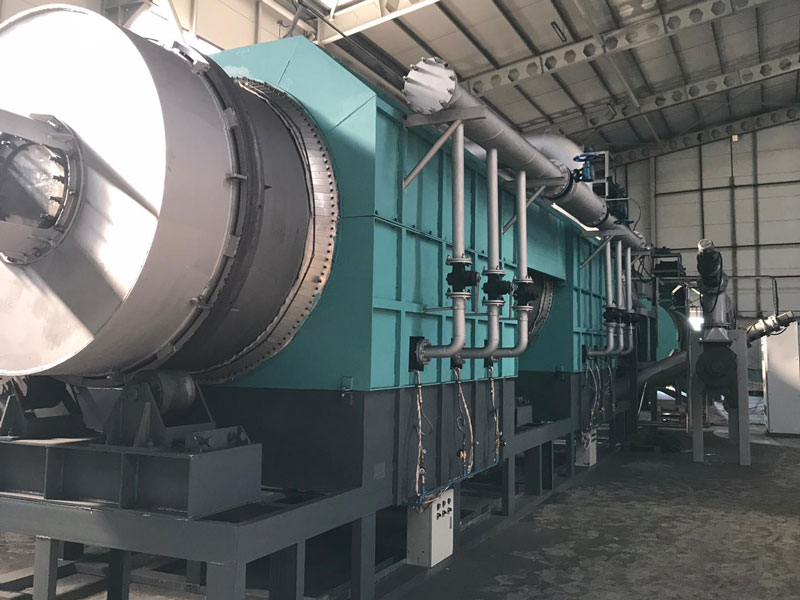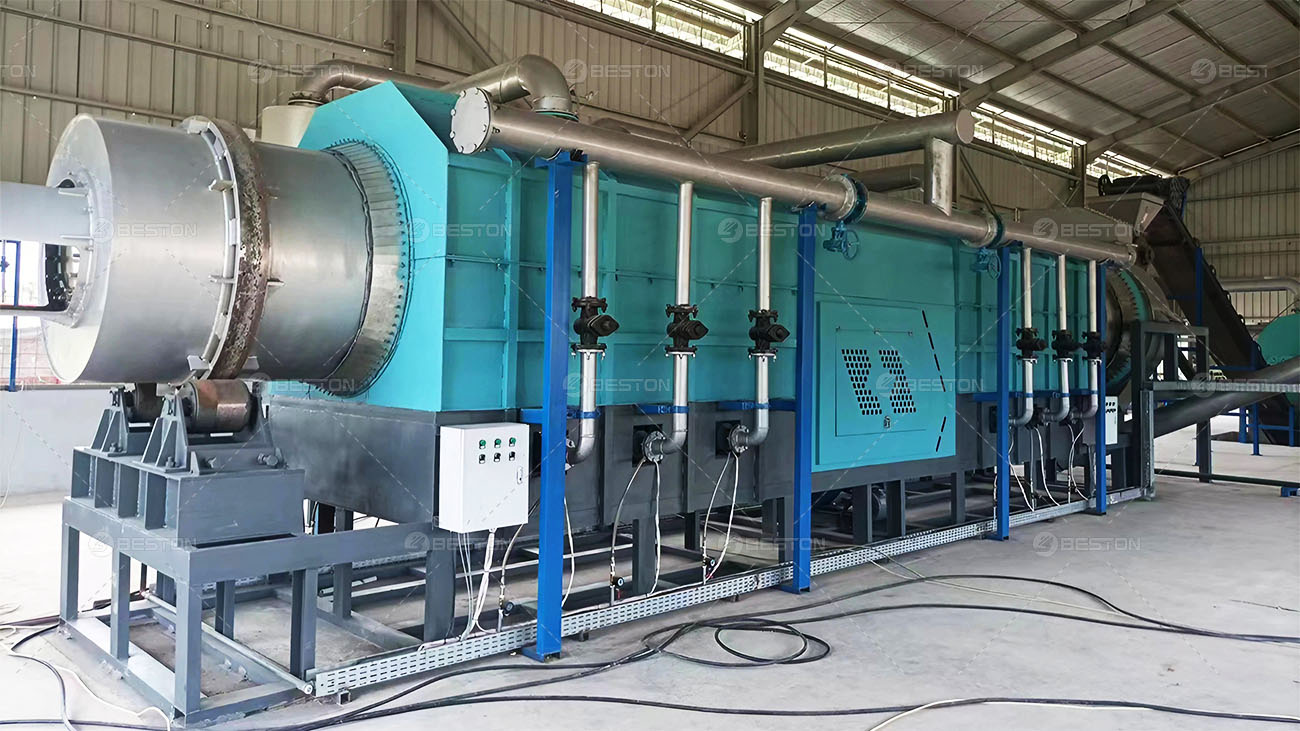The price of a coconut shell charcoal machine is influenced by a multitude of factors that determine its overall cost. As demand for eco-friendly and sustainable charcoal production increases, understanding these variables becomes crucial for potential buyers. The right combination of equipment specifications, manufacturing quality, and operational efficiency can significantly affect the price of the charcoal machine. This article explores the key factors that influence the cost of a coconut shell charcoal machine, offering insights into how each element contributes to the final price.
1. Machine Capacity and Size
The production capacity and size of a machine for making charcoal are two of the most significant factors influencing its price. Machines with a higher throughput typically cost more due to the increased complexity and scale of their design. For instance, a machine capable of processing large quantities of coconut shells per hour will require more robust components and advanced engineering, which adds to its price.
Conversely, smaller machines with lower production capacities will generally be more affordable. The specific needs of the buyer will dictate the required capacity, whether it’s a smaller, more affordable model for local production or a larger, industrial-grade machine for large-scale operations.

2. Technological Features
Technological advancements incorporated into the charcoal machine significantly affect its price. Machines with advanced features such as automatic feeding systems, precise temperature controls, and continuous operation capabilities tend to be priced higher. Automation in the production process not only increases efficiency but also reduces the need for manual labor, which can be a long-term cost-saving feature.
Additionally, more sophisticated machines may include safety mechanisms, energy recovery systems, and advanced environmental controls, such as air purification or emissions monitoring, which contribute to higher manufacturing costs. Buyers seeking high-tech solutions for more efficient or environmentally-friendly operations should expect a higher upfront price.
3. Material and Build Quality
The materials used to construct the coconut charcoal making machine are integral to its durability and performance, influencing the overall cost. Machines made with high-grade, corrosion-resistant steel, for example, are more expensive to produce but offer longer lifespans and better performance in harsh operating conditions.
Cheaper machines, often constructed with lower-quality materials, may have a shorter lifespan and lower resistance to wear and tear. While the initial investment may be smaller, these machines may require frequent maintenance or replacement, leading to higher long-term costs.

4. Energy Efficiency
The energy consumption of a coconut shell charcoal machine is another key factor in its price. Machines designed to be energy-efficient typically come at a higher cost due to the technology involved. These systems are designed to minimize fuel consumption by utilizing waste heat for other processes, such as drying or pre-heating the feedstock.
Energy-efficient machines can lower operational costs over time, making them an attractive option for businesses that plan on running the machine continuously. While the initial price may be higher, the potential savings in energy costs often make these machines a better investment in the long run.
5. Production Method and Complexity
The production process also plays a role in determining charcoal briquette machine price. Machines that use more sophisticated technologies, such as advanced carbonization or pyrolysis methods, are usually more expensive. These machines typically offer higher yields, better product quality, and faster processing times, which justify their higher price.
Machines with simpler, more traditional carbonization methods tend to be less costly but may have lower efficiency or require more frequent monitoring and maintenance. Depending on the buyer’s needs, the complexity of the production method and its associated costs can vary.
6. Brand and Manufacturer Reputation
The reputation of the charcoal machine manufacturer is another significant factor influencing price. Well-established manufacturers with a history of producing high-quality, reliable equipment tend to charge a premium for their products. This premium is often justified by the manufacturer’s reputation for product reliability, after-sales support, and warranty services.
On the other hand, lesser-known brands or manufacturers may offer machines at a lower price, but buyers should carefully assess their product quality and customer service capabilities. In some cases, opting for a more affordable machine from an unknown brand can lead to long-term risks if the equipment lacks durability or after-sales support. Want to get a one-stop product experience? You can choose Beston Group.
7. Geographic Location and Shipping Costs
The geographic location of both the buyer and manufacturer can affect the price of the charcoal machine, especially if the machine needs to be shipped internationally. Shipping costs, import taxes, and tariffs can add significant expenses to the base price of the equipment. For buyers located far from the manufacturer, these additional costs can be substantial and should be considered when calculating the total cost of acquisition.
Manufacturers located closer to the buyer may offer reduced shipping rates, resulting in lower overall costs. Additionally, local manufacturers may have the advantage of offering faster delivery times and easier access to spare parts and maintenance services.
8. After-Sales Service and Warranty
After-sales support, including warranties, maintenance services, and spare parts availability, is an essential consideration when purchasing a coconut shell charcoal machine. Machines that come with a comprehensive warranty and readily available spare parts can save the buyer significant amounts in repair and maintenance costs over time.
Machines without adequate after-sales service may result in hidden costs due to breakdowns, delays, or the difficulty of sourcing replacement parts. As such, the level of service offered by the manufacturer is a key consideration when evaluating machine prices.
9. Market Demand and Supply
Lastly, the general market demand and supply for coconut shell charcoal machines can have an impact on pricing. During periods of high demand or when the market for charcoal production is particularly profitable, prices may increase due to the higher demand for machines. Conversely, during times of economic downturn or oversupply, prices may decrease as manufacturers compete to attract customers.
Buyers should be mindful of market trends and timing when making their purchase to avoid paying inflated prices during periods of high demand.